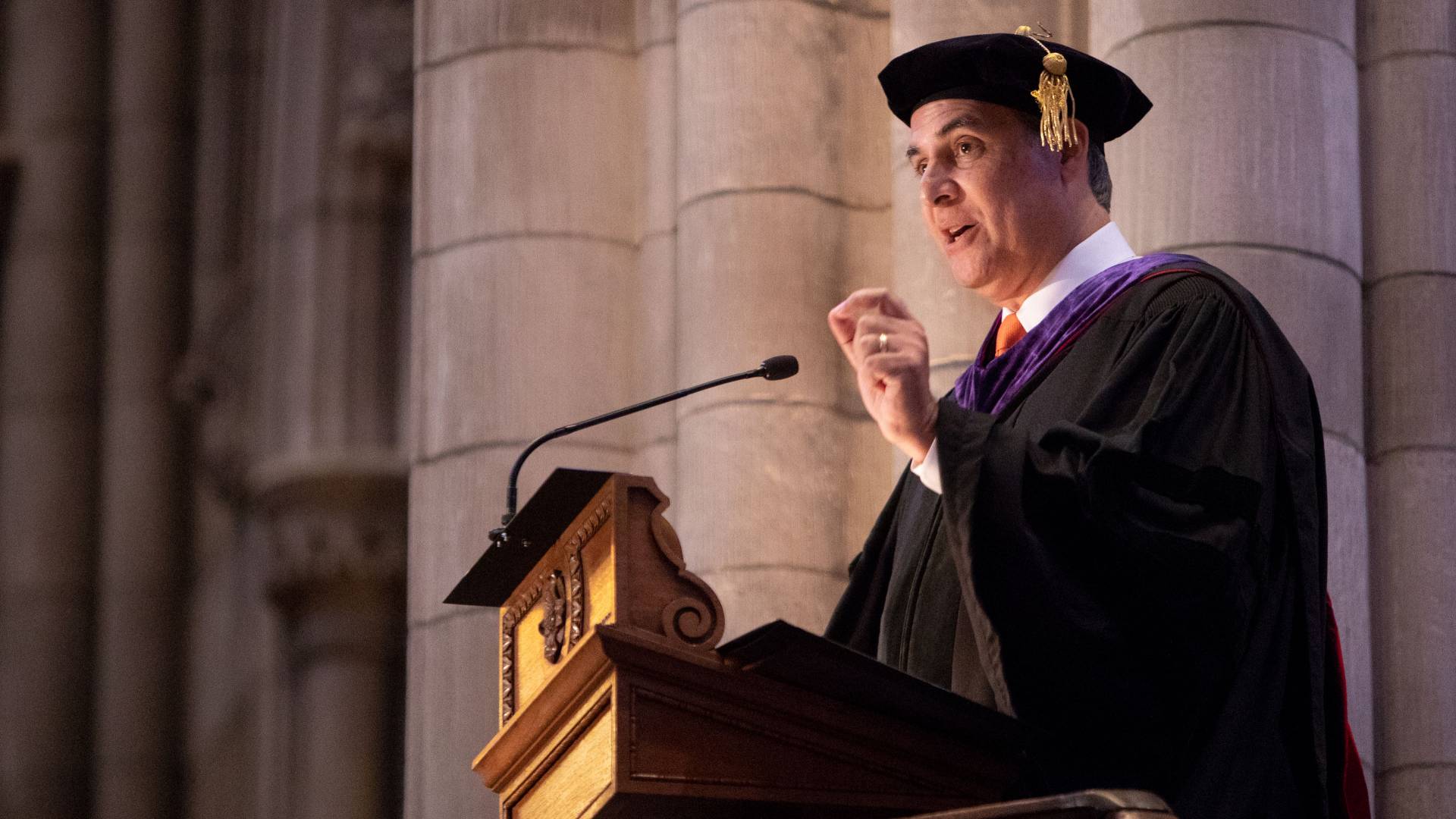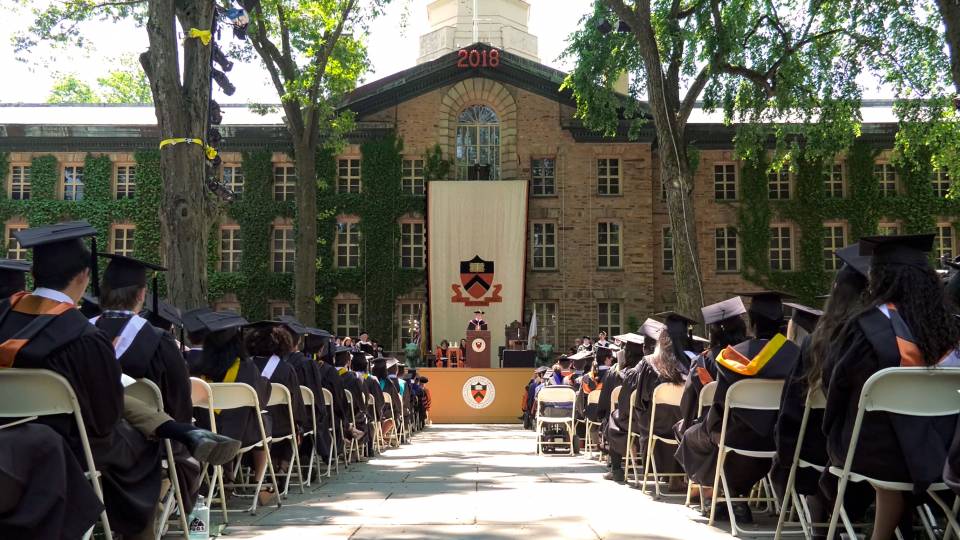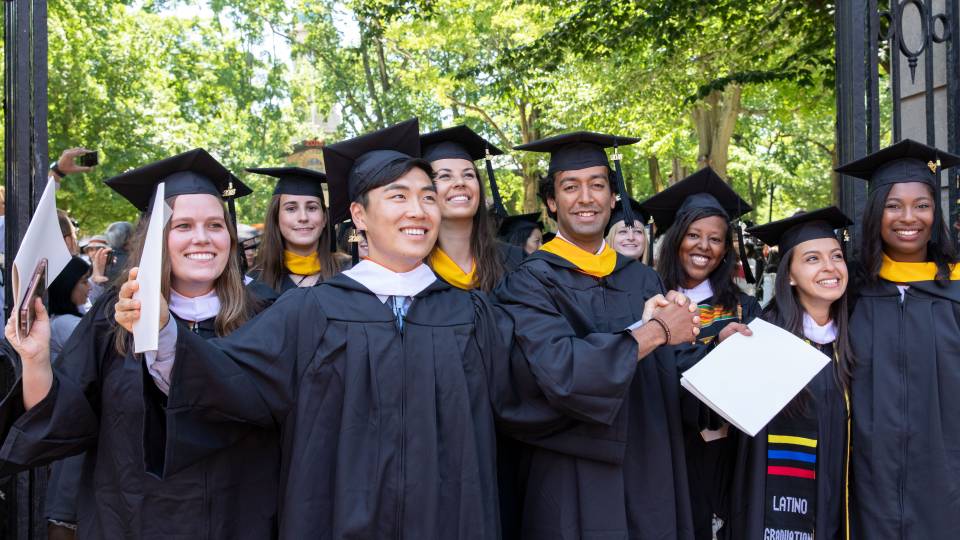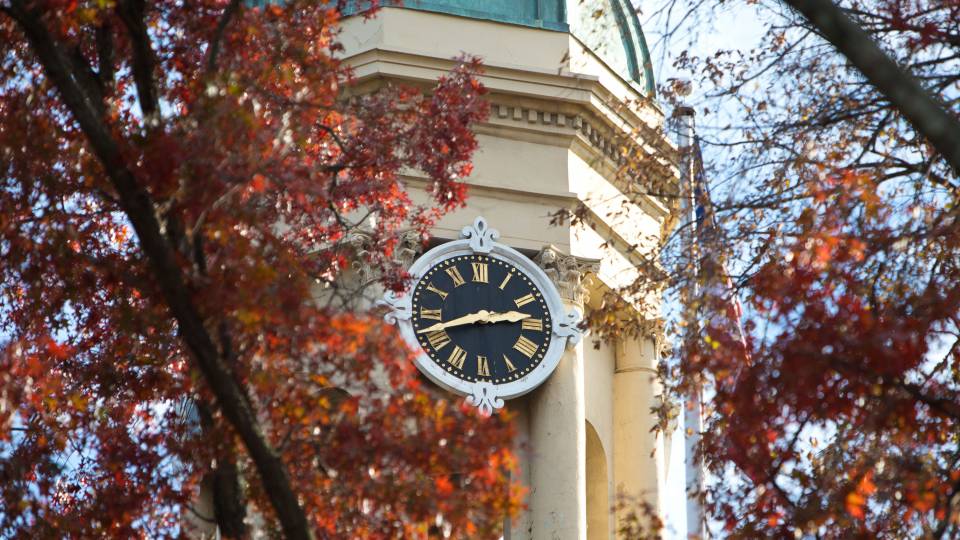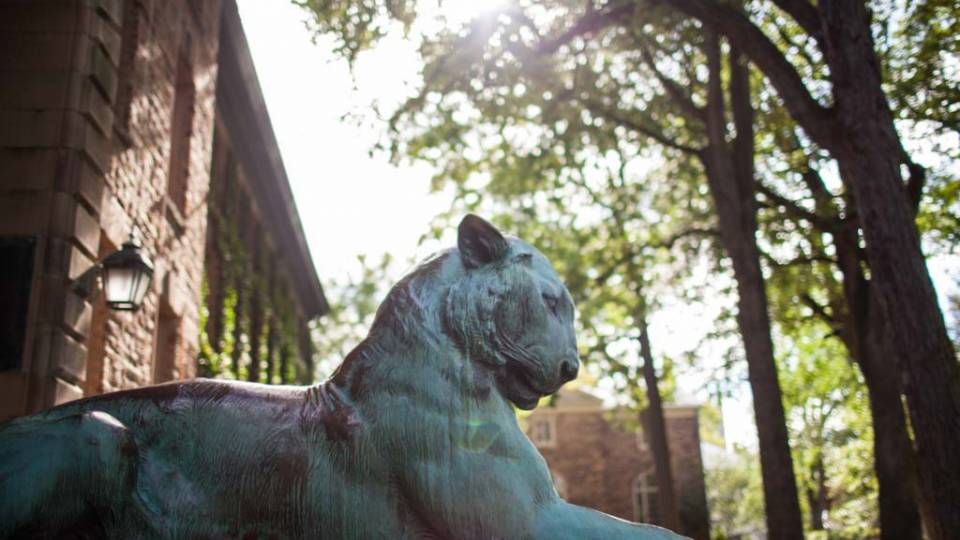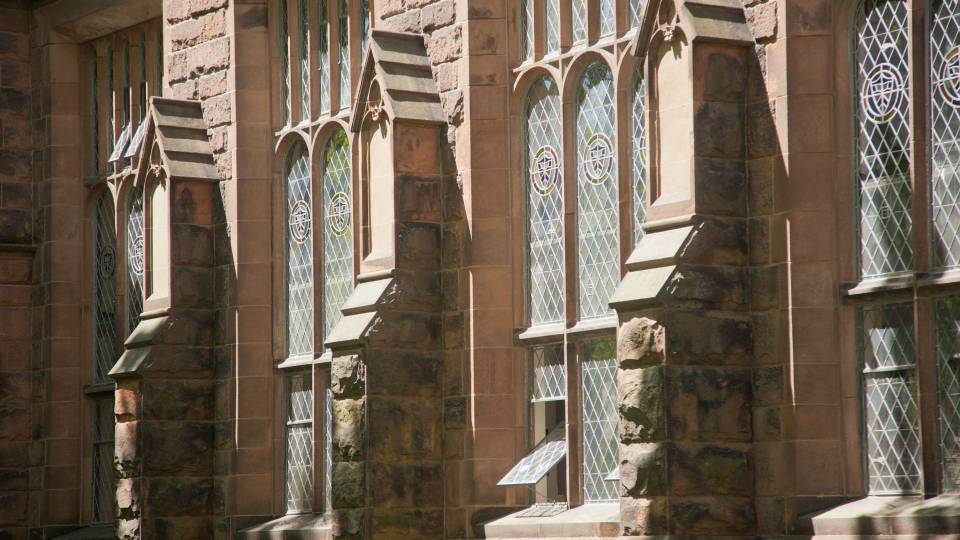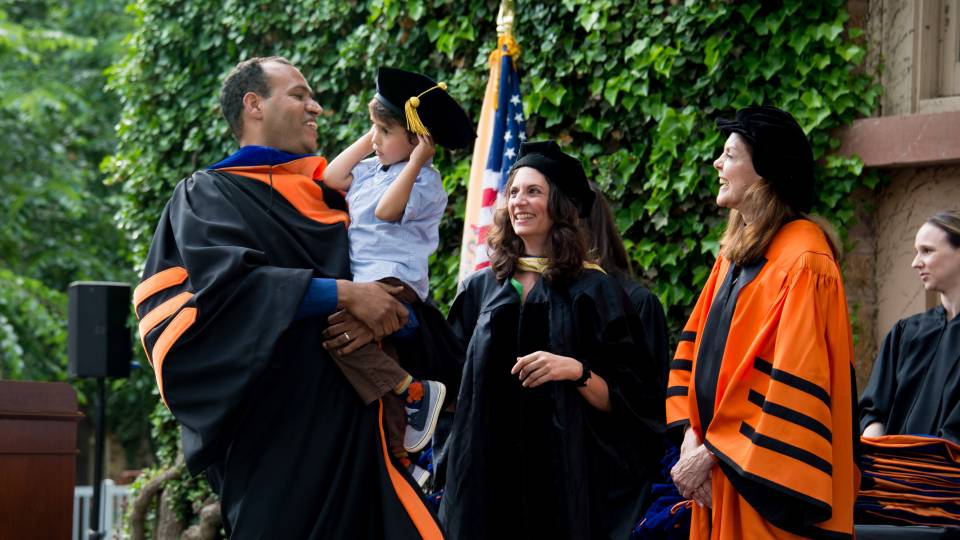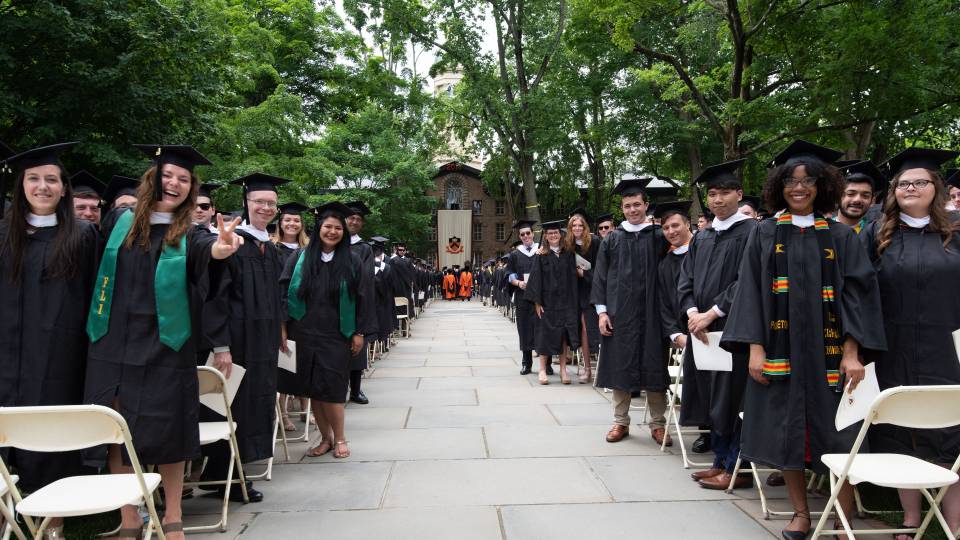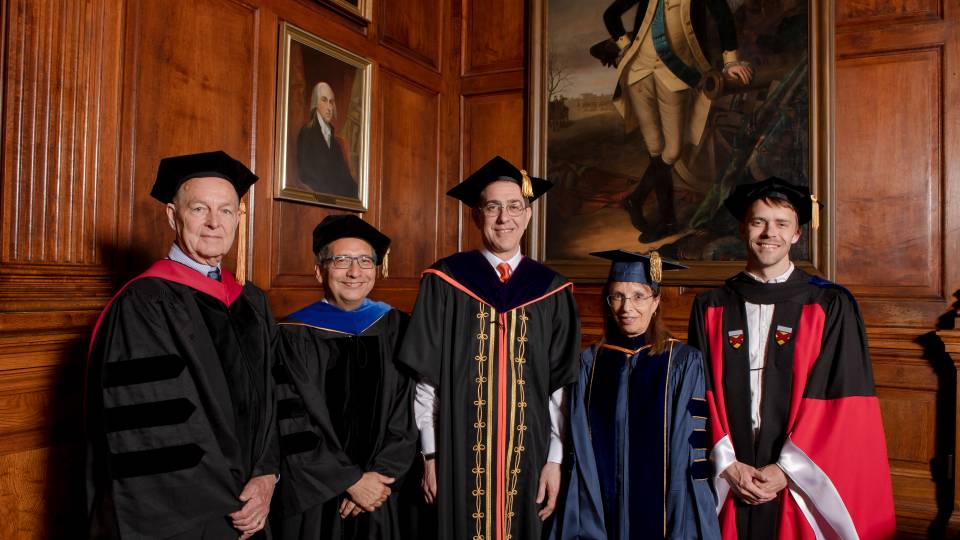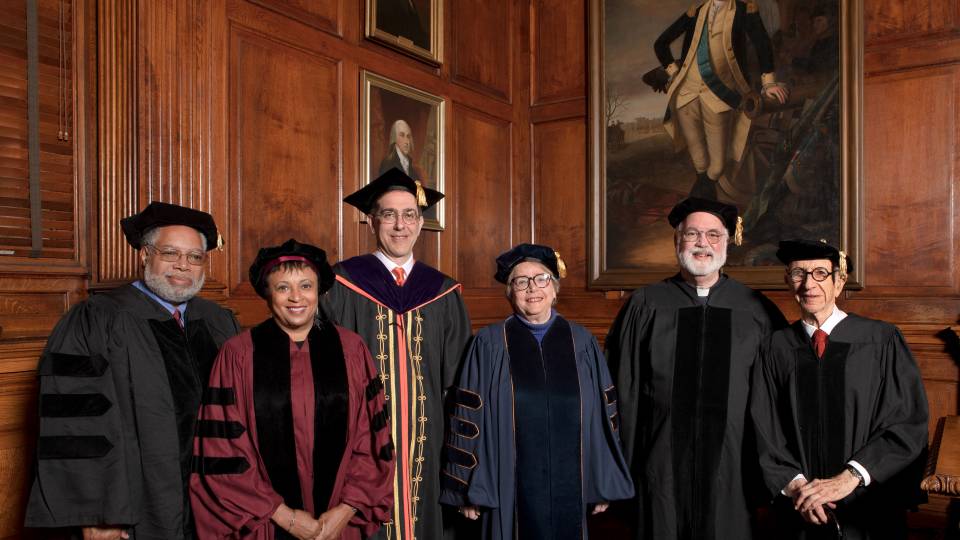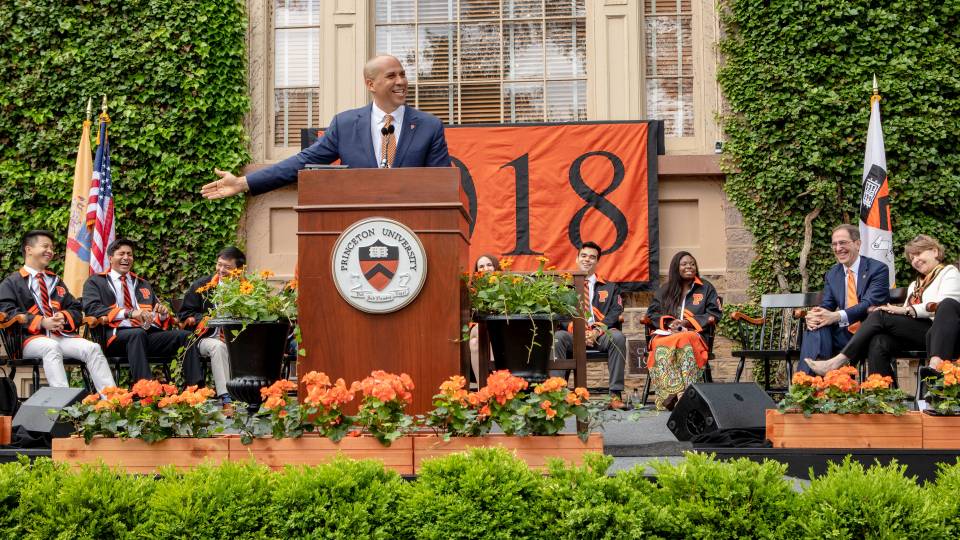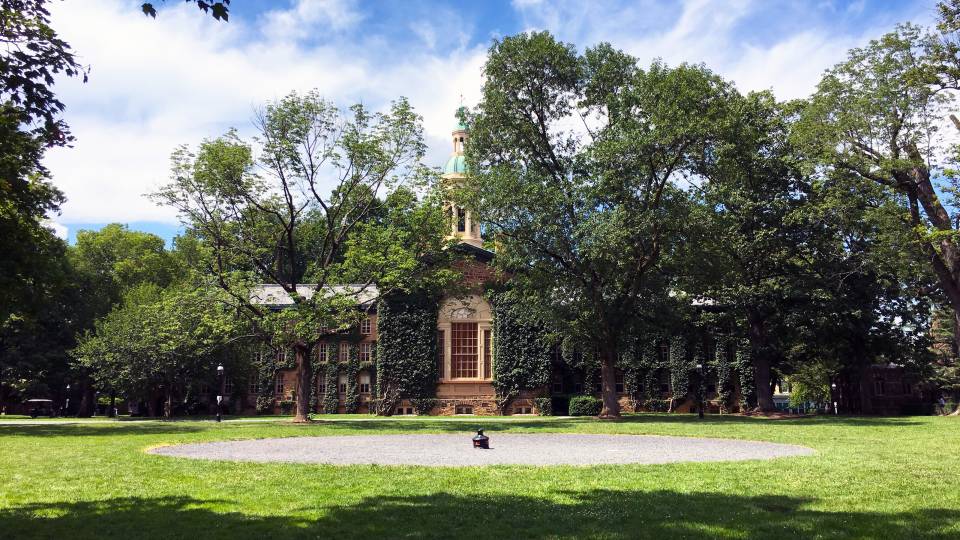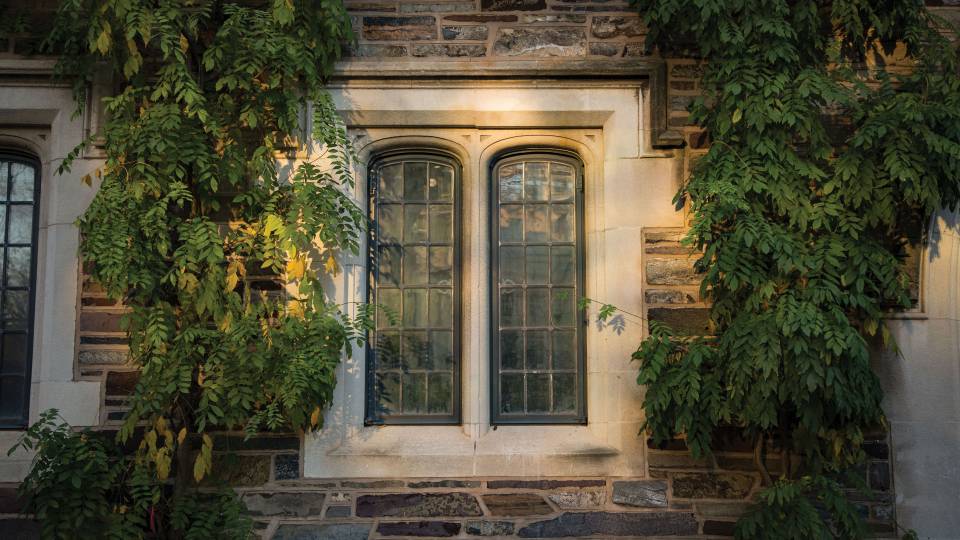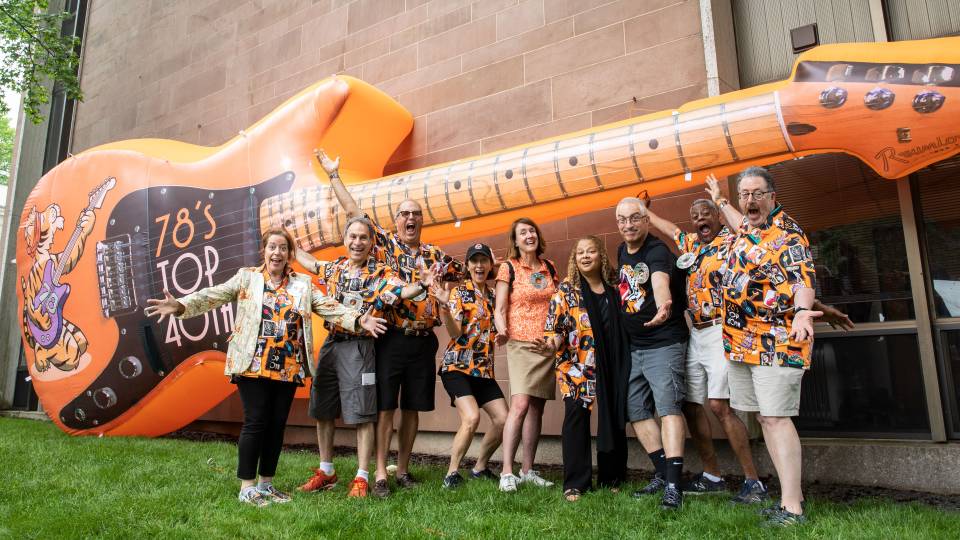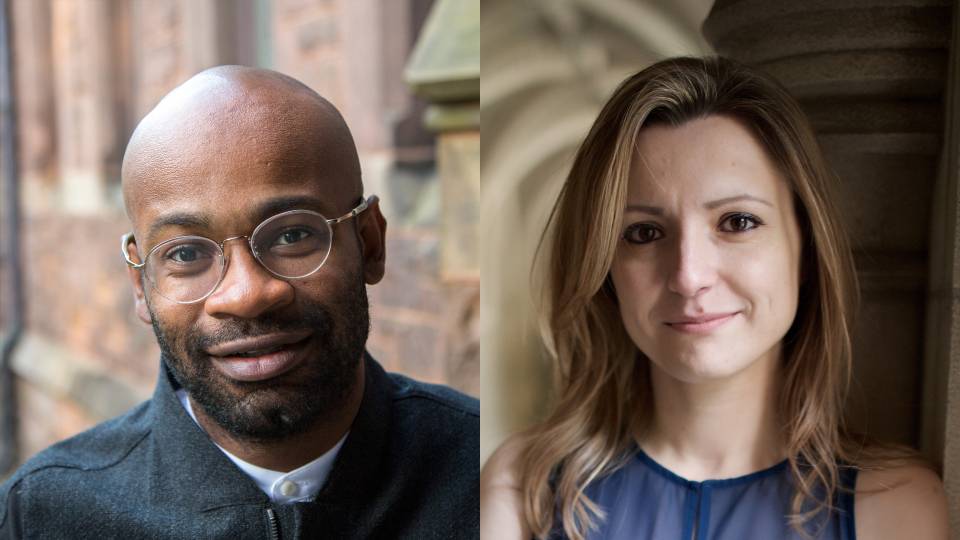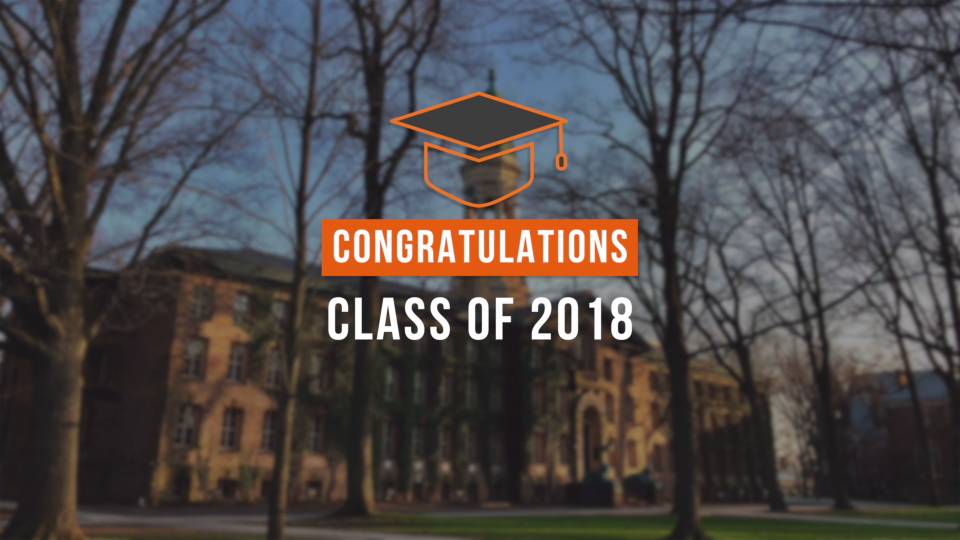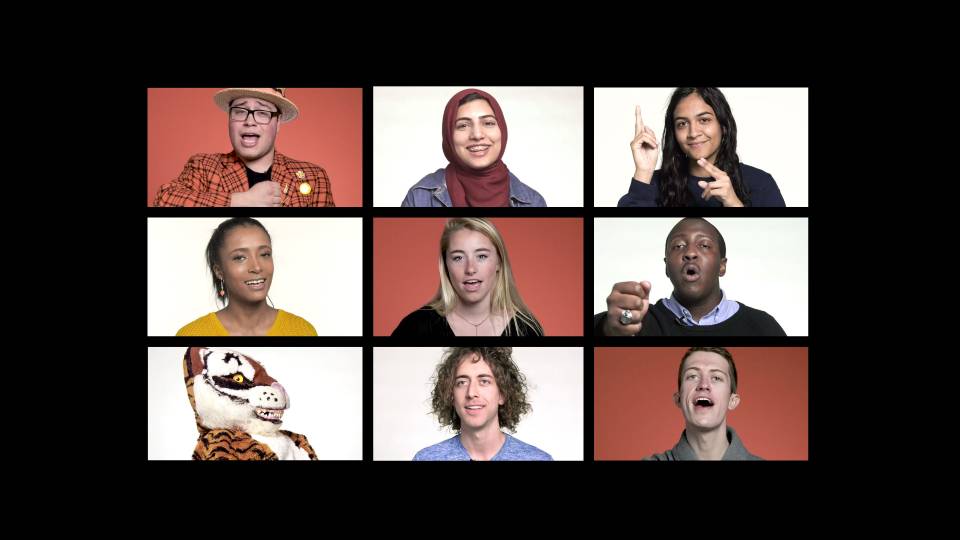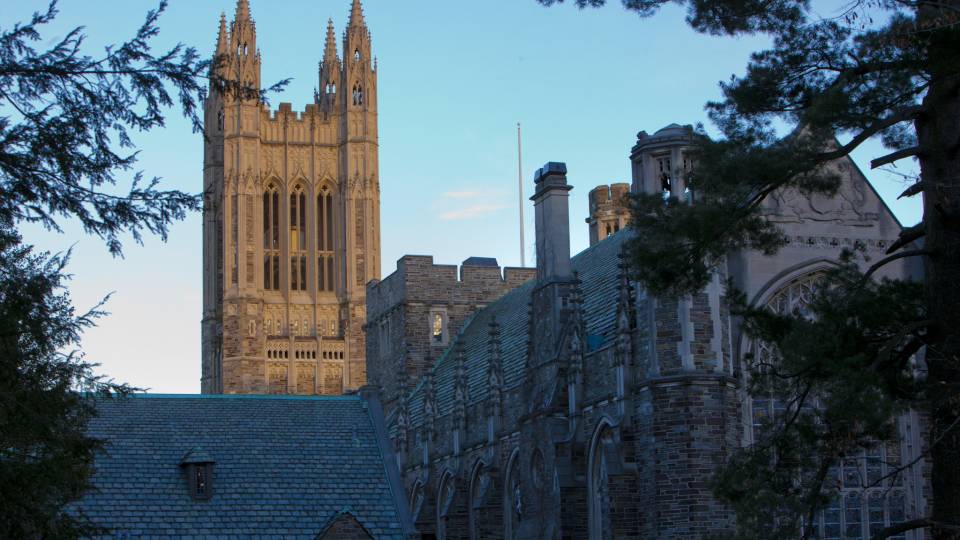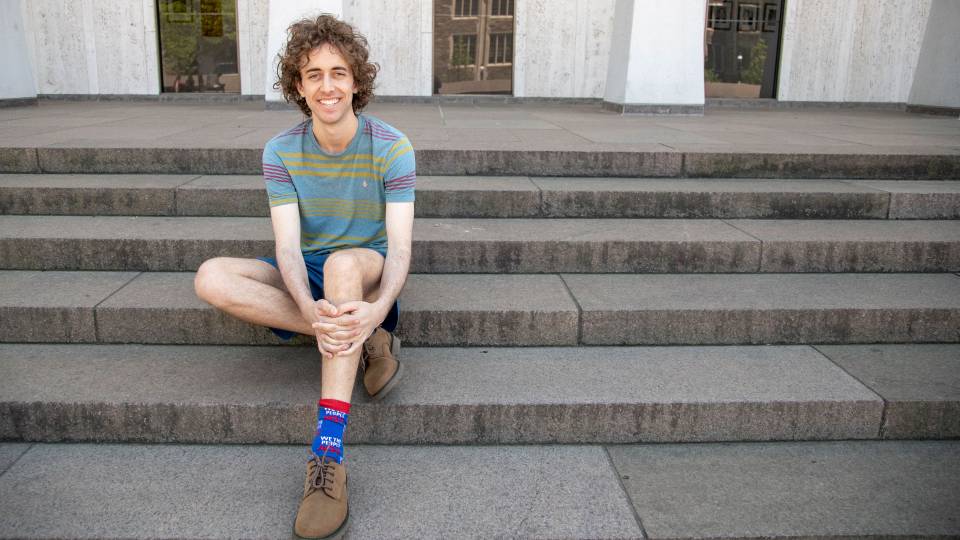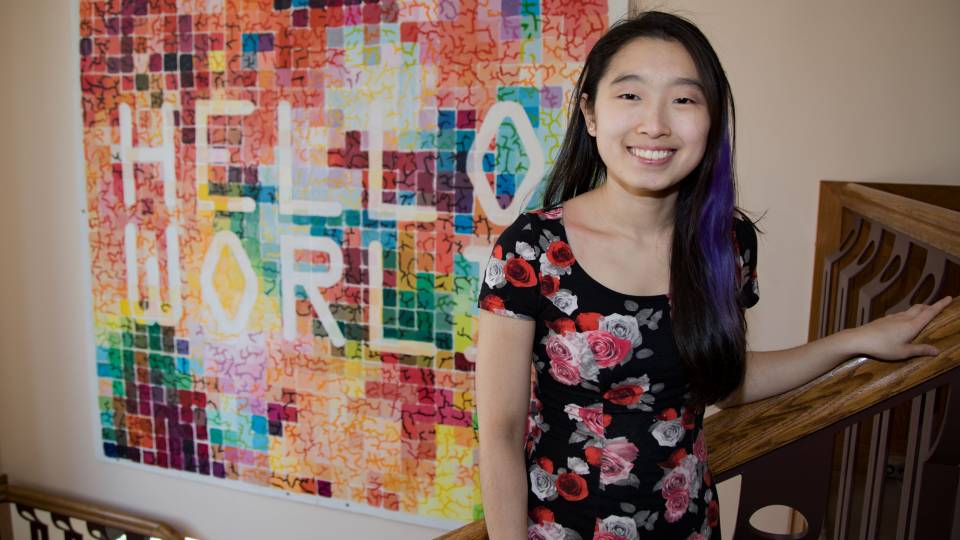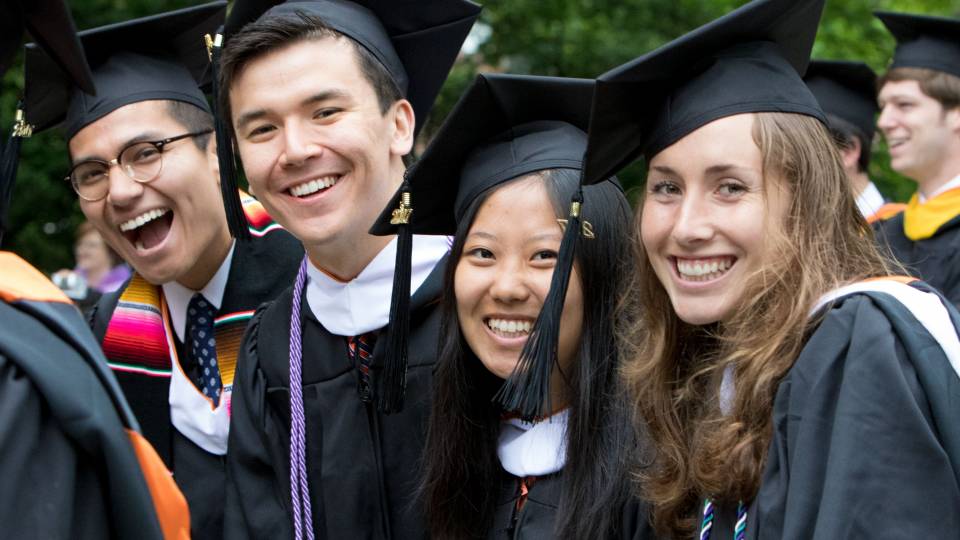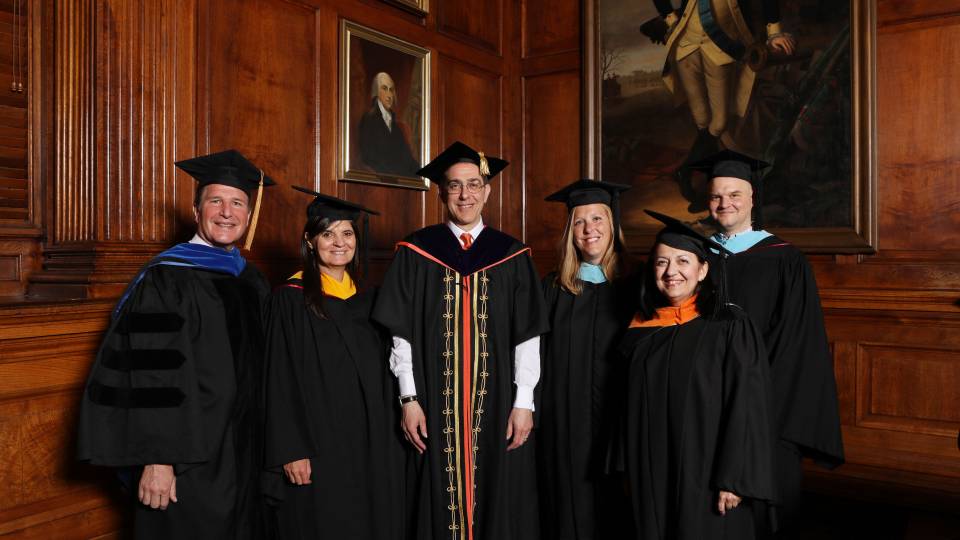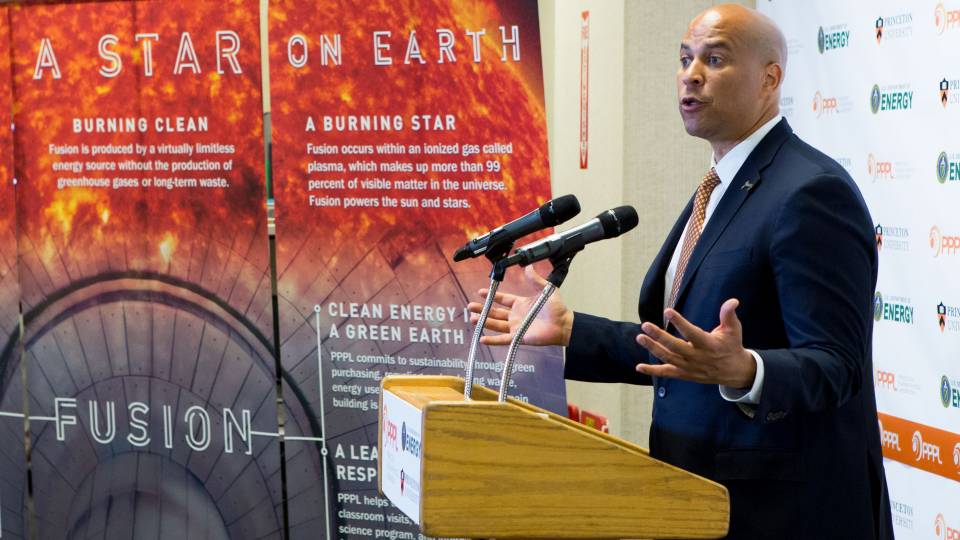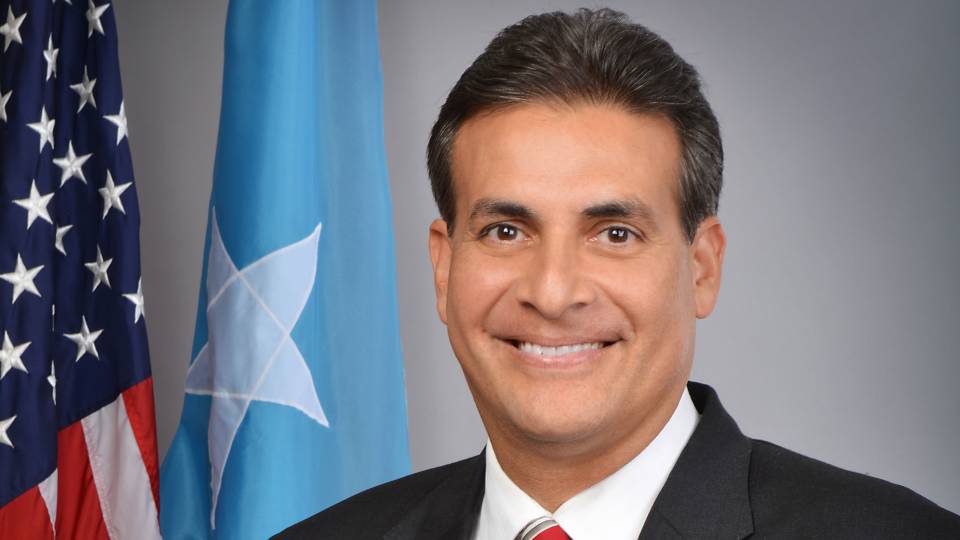At Princeton’s Baccalaureate service on June 3, Eduardo Bhatia of the Class of 1986, former president of the Senate of Puerto Rico, delivers an impassioned address denouncing the “culture of lies” and calling upon the graduating class to confront it with honor and integrity.
Princeton’s Class of 2018 began celebrating three days of graduation events on Sunday, June 3, at the 271st Baccalaureate, an interfaith service that is one of the University’s oldest traditions. From the high pulpit, Speaker Eduardo Bhatia, minority leader and former president of the Senate of Puerto Rico, stressed the need for honor and integrity in a life of service.
Baccalaureate offers seniors a moment of reflection between Reunions and the upcoming occasions of Class Day and Commencement. The service dates to at least 1760 and features music, blessings and readings from a range of faith and philosophical traditions. The service began with an invocation from the Rev. Alison Boden, dean of religious life and the chapel.
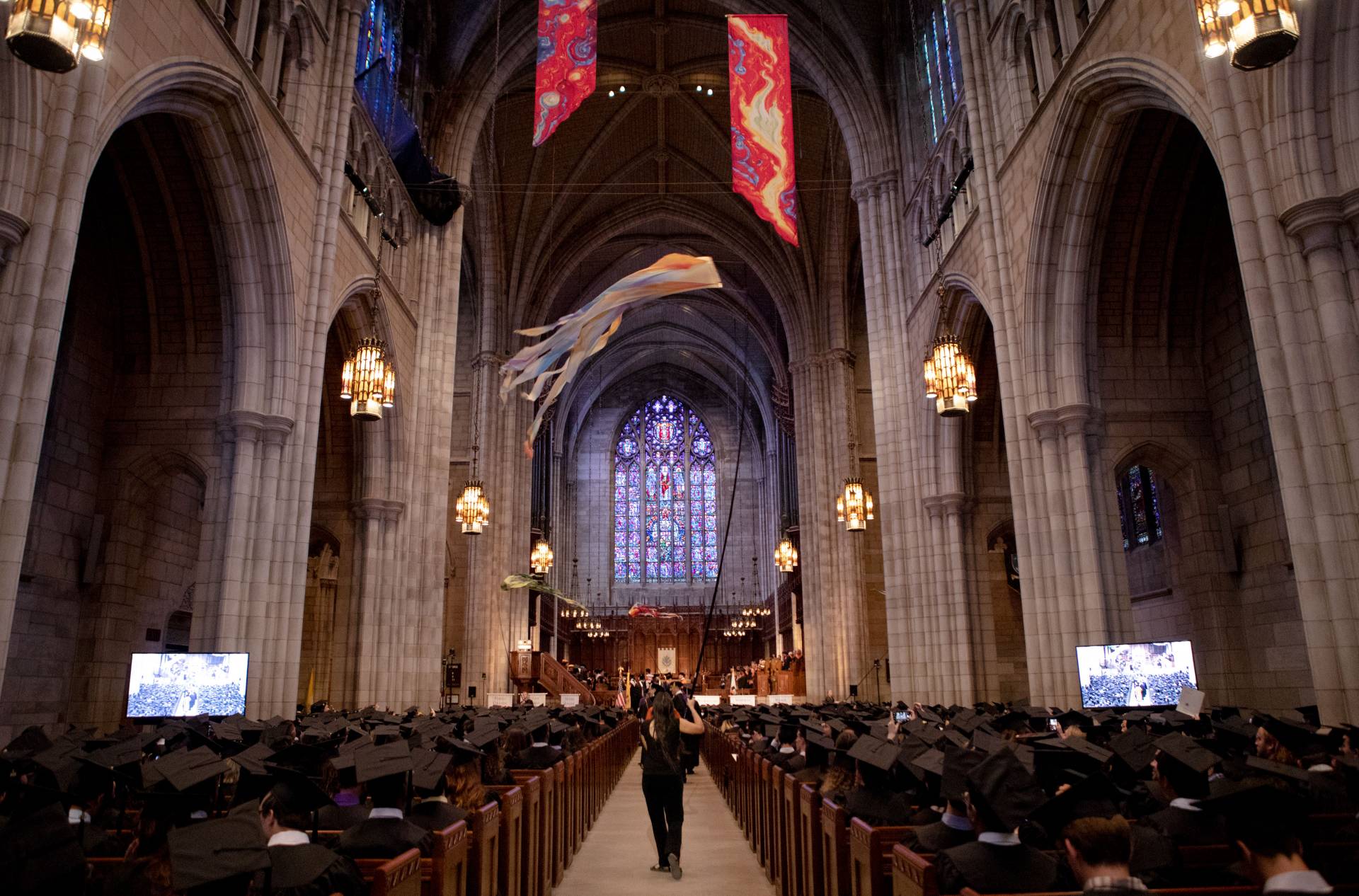
Colorful kites and music bring a festive note to the ceremony in the University Chapel.
The call to help others and serve humanity ran throughout the service, from the readings selected by seniors to the remarks from Bhatia, a member of the Class of 1986, and University President Christopher L. Eisgruber.
“All Princetonians take great pride in our shared mission to be ‘in the nation’s service and the service of humanity,’” said Eisgruber. “At the heart of our community is the desire and responsibility to make the world a better place.
“As you enter your next stage of life as a Princetonian, I know you have left our campus better than when you arrived, and that you are poised to have the same impact on the world around us. For that you have my deepest respect and gratitude.”
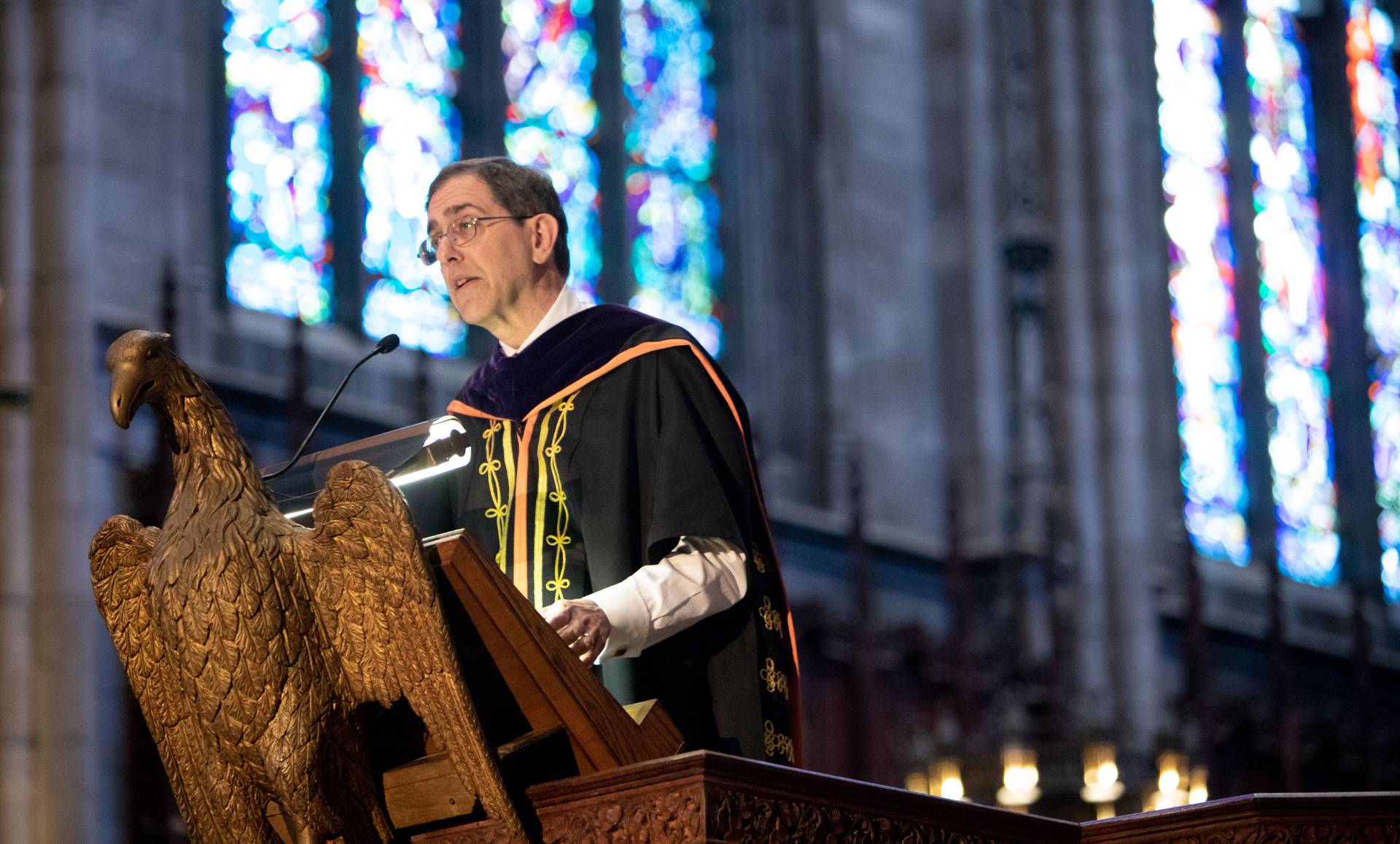
University President Christopher L. Eisgruber welcomes seniors before introducing Bhatia.
Eisgruber introduced Bhatia, describing his leadership and activism at Princeton and beyond, including his multiple roles in the government of Puerto Rico.
“Eduardo launched his political career in 1996, when at the age of 32, he was elected senator-at-large in Puerto Rico, becoming the youngest Puerto Rican senator in that four-year term and one of the youngest in the history of the Senate in Puerto Rico,” Eisgruber said. “Throughout his distinguished career, Eduardo has exemplified the University’s mission of service to humanity as a dedicated public servant who has fought to advance the well-being of Puerto Rico.”
Bhatia earned his bachelor’s degree from Princeton’s Woodrow Wilson School of Public and International Affairs and his J.D. from Stanford Law School, where he was editor of the Stanford Journal of Law and Policy.
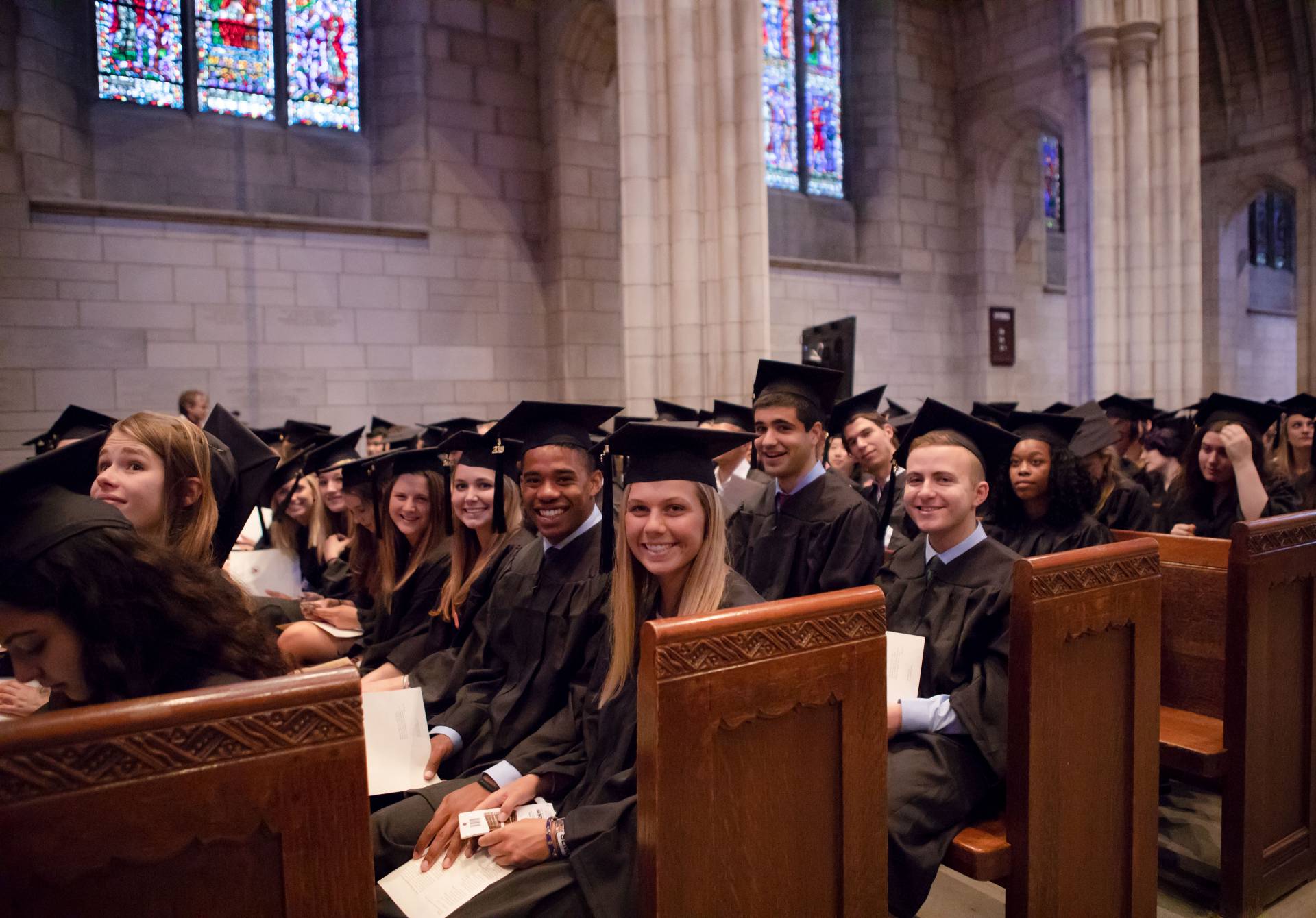
Seniors await the start of the service in the University Chapel.
Beginning his address, Bhatia told the seniors he was “here to talk about public service.”
“I decided many years ago that public service was the vehicle to help right what I believe is so wrong in America and in Puerto Rico,” he said.
Bhatia told the seniors that he is the son of a Puerto Rican woman who battled racism and a Punjabi Sikh whose family was massacred during the 1947 partition war between India and Pakistan.
“Despite their painful experiences, and far from the hostility, hate and resentment that they could have very well borne, I grew up in a home full of love, tolerance and inclusion,” Bhatia said. “My parents taught me to speak up for those who don't have a voice and to love ‘al prójimo,’ love thy neighbor.”
He reminded the seniors that Princeton’s Honor Code was proposed in 1893 by members of that year’s senior class, who wanted to foster academic honesty.
“What do I love about that story?” Bhatia asked. “Our Honor Code was not imposed on students. The leadership, courage and vision came from the senior class.”
He highlighted three key components of the Honor Code: a personal commitment to integrity and high standards, a commitment to hold others accountable, and the courage to act.
“You are about to depart Princeton,” Bhatia said. “Believe me, in the polarized political and social environment of 2018, those words are more important than ever. They represent a commitment, a promise and a responsibility to confront an old and dangerous disease that has destroyed many institutions and many nations in the past; a disease that is making its return with a vengeance: the culture of institutional lies; what is now called ‘alternative facts.’”
Bhatia described what he had observed as a Fulbright Scholar in Chile in 1986, when Gen. Augusto Pinochet was in power. “The consequences of a government based on dishonesty in Chile were devastating: people were desperately trying to decry human rights violations; people were afraid to be visible, but absolutely needing to denounce the atrocities being committed,” he said. “The greatest lesson I took from Chile is the humanitarian cost that nations and people pay when the lack of democratic consensus leads to dangerous authoritarian governments.
“Fast forward 32 years. … I don't know about you, but I am starting to hear too much of the same poisonous rhetoric that led in the past to heinous consequences. This public discourse, based on so much information that is simply not true, makes me question whether government of the people, by the people and for the people may actually perish if we don’t do something about it.”
He provided perspective from his work in Puerto Rico, which filed for bankruptcy in 2017 after more than a decade of depression. “We are now seeing the enormous consequences of bond rating fabrications, ignoring experts’ warnings and simply looking the other way when serious, verifiable data was presented. Our citizens are now paying the price.
“And then disaster struck. On September 20, 2017, we were devastated by Maria, the most powerful hurricane to make landfall over the island. We did not have energy or running water for months. There are some families still waiting to get energy. Up in the mountains, children died of leptospirosis after drinking contaminated water. The bureaucratic response by federal and state authorities has been not only shameful but reprehensible and immoral. Many people were left to survive on their own. And mind you: Puerto Ricans have been United States citizens for 100 years.”
Frustrated by the government response, Bhatia and others bought dozens of 500-gallon cisterns and thousands of portable water filters that they installed in churches, community centers and rural areas, which provided the equivalent of 350,000 bottles of safe drinking water per day.
Bhatia paused to thank Princeton senior Diego Negrón-Reichard, who raised the funds to help finance that effort and many other Puerto Rico relief projects.
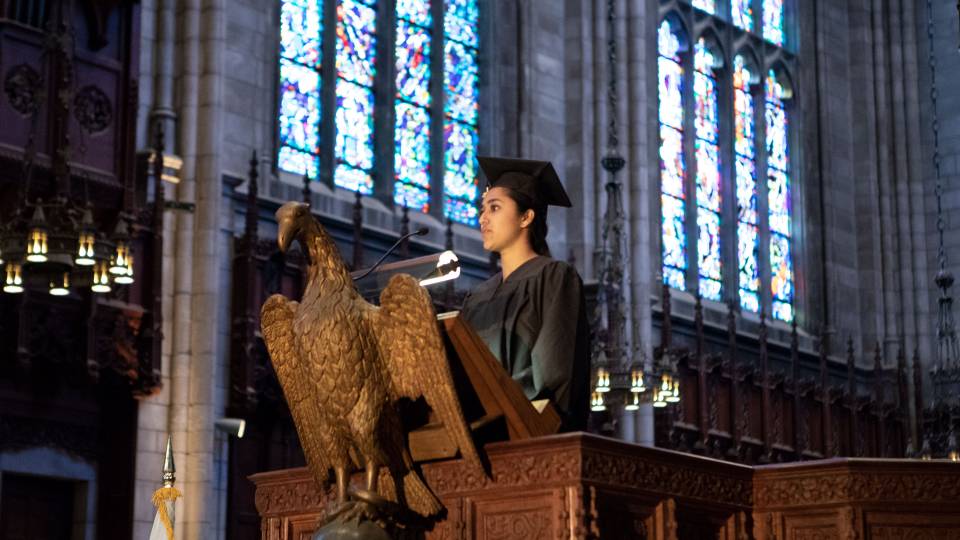
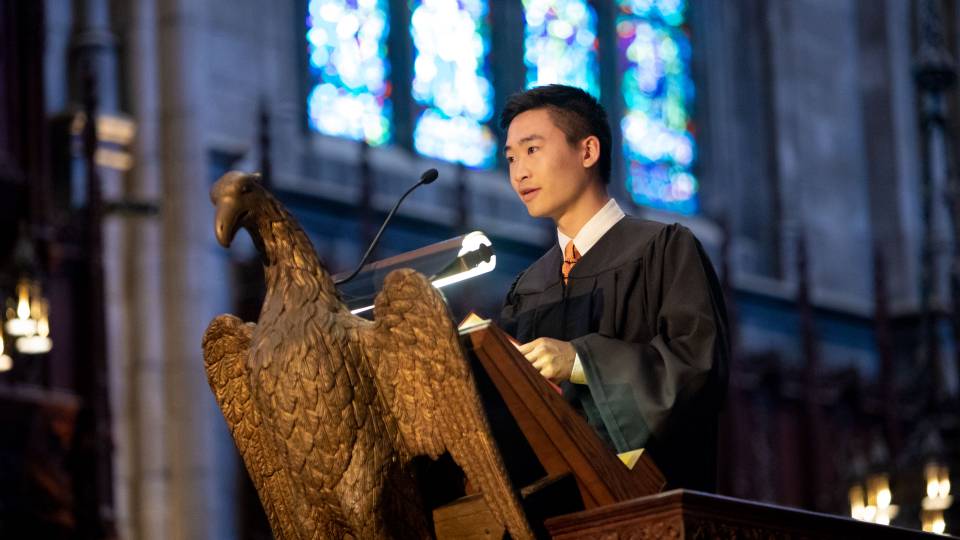
Senior Baljot Ranu shares a Sikh blessing, one of several student blessings given during the interfaith ceremony.
Senior Brandon Joa reads a passage he selected from the book of James in the Bible.
Bhatia pointed to other causes for hope: “Look around America today. There are fighters out there confronting the culture of lies and alternative facts; telling the truth and reporting violations of vital principles and values, just like Martin Luther King and other leaders of the civil rights movement did in the 1960s. Choose your cause and make your honest argument.
“Today, I salute the Black Lives Matter movement. I salute the women all over the United States in the #MeToo movement. I salute the … victims not only of senseless school shootings but of senseless gun legislation.”
He also saluted “thousands of excellent Latino students in our colleges and universities fighting not to be deported” as well as the efforts of university presidents Eisgruber and Harvard’s Drew Faust, to urge Congress to “stop absurd deportations and provide legal status for people from El Salvador, Haiti, Honduras, Nepal, Nicaragua and Sudan.
“All these groups — brave men and women — are saying enough is enough with this culture hostility, of confrontation and intimidation. And yes, the culture of lies.”
Princeton students are uniquely equipped to change this culture, said Bhatia. “You have had the best education in the world, and your generation has … the tools to have a voice more powerful than any other generation,” he said. “That comes with a responsibility to spread the truth.”
He ended with a charge to the graduates: “El silencio no es opción. Silence is not an option. So, Class of 2018, denounce what needs to be denounced; fix what is broken; right what is wrong and do not allow anyone, regardless of their agenda, to use false data and pretenses to confuse citizens and weaken democracy. Be the vital voices to restore democratic principles. Don’t look elsewhere. It is you: the great Class of 2018! ¡Hablen, seniors, hablen! Speak up, seniors, speak up!”
As the organ’s pipes filled the air with music, the seniors processed into and out of the University Chapel under colorful, swirling kites, behind banners representing Princeton’s six residential colleges. On Cannon Green, families and friends of the seniors watched the service on two large screens behind Nassau Hall.
The Baccalaureate service will be available later for viewing online. End-of-the-year activities will continue on Monday, June 4, with Class Day for seniors and the Hooding ceremony for advanced-degree candidates, followed by Commencement on Tuesday, June 5.
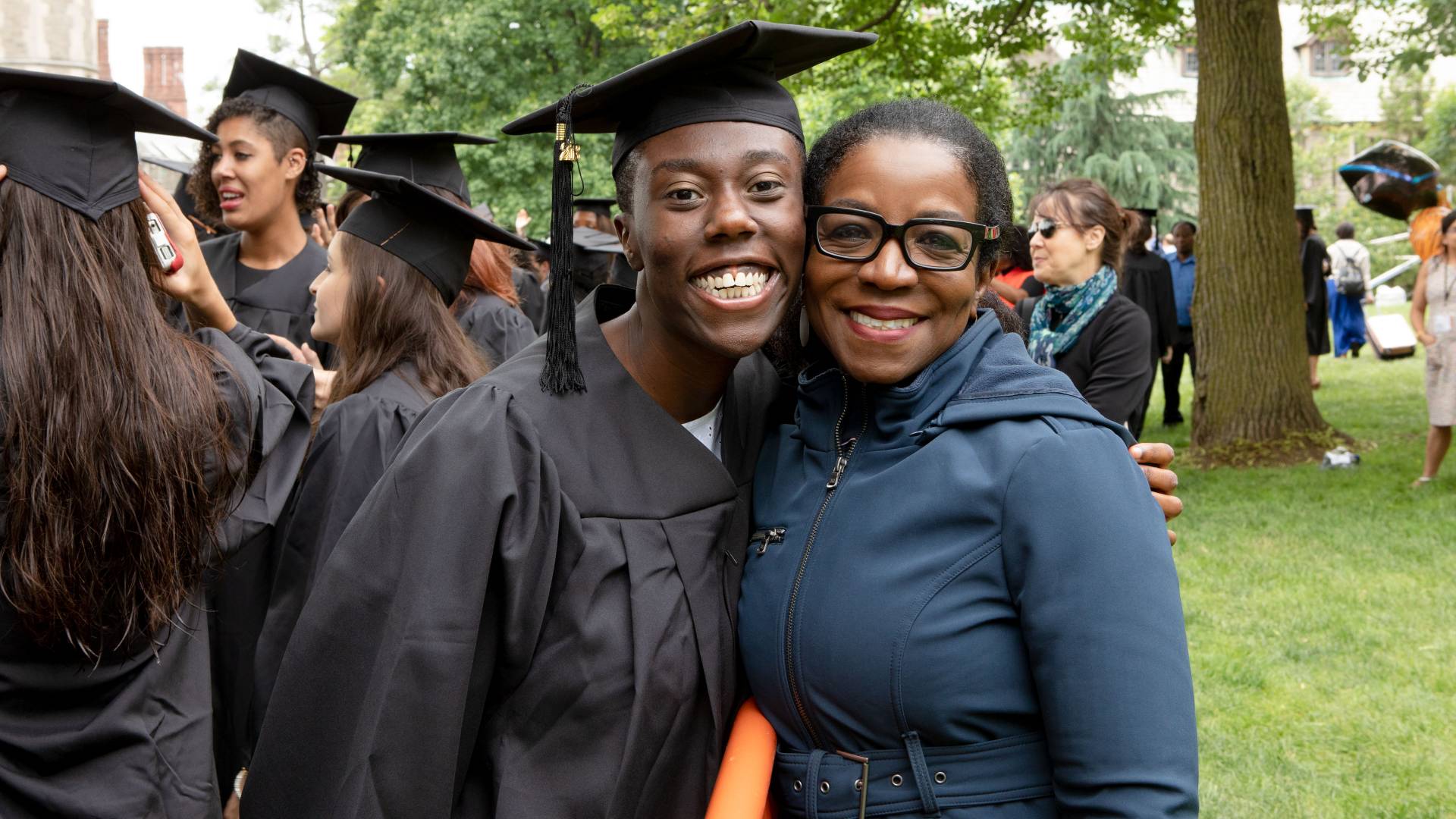
Tatiana Evans, of Los Angeles, poses with her godmother Carolyn Barnes before lining up for Baccalaureate.
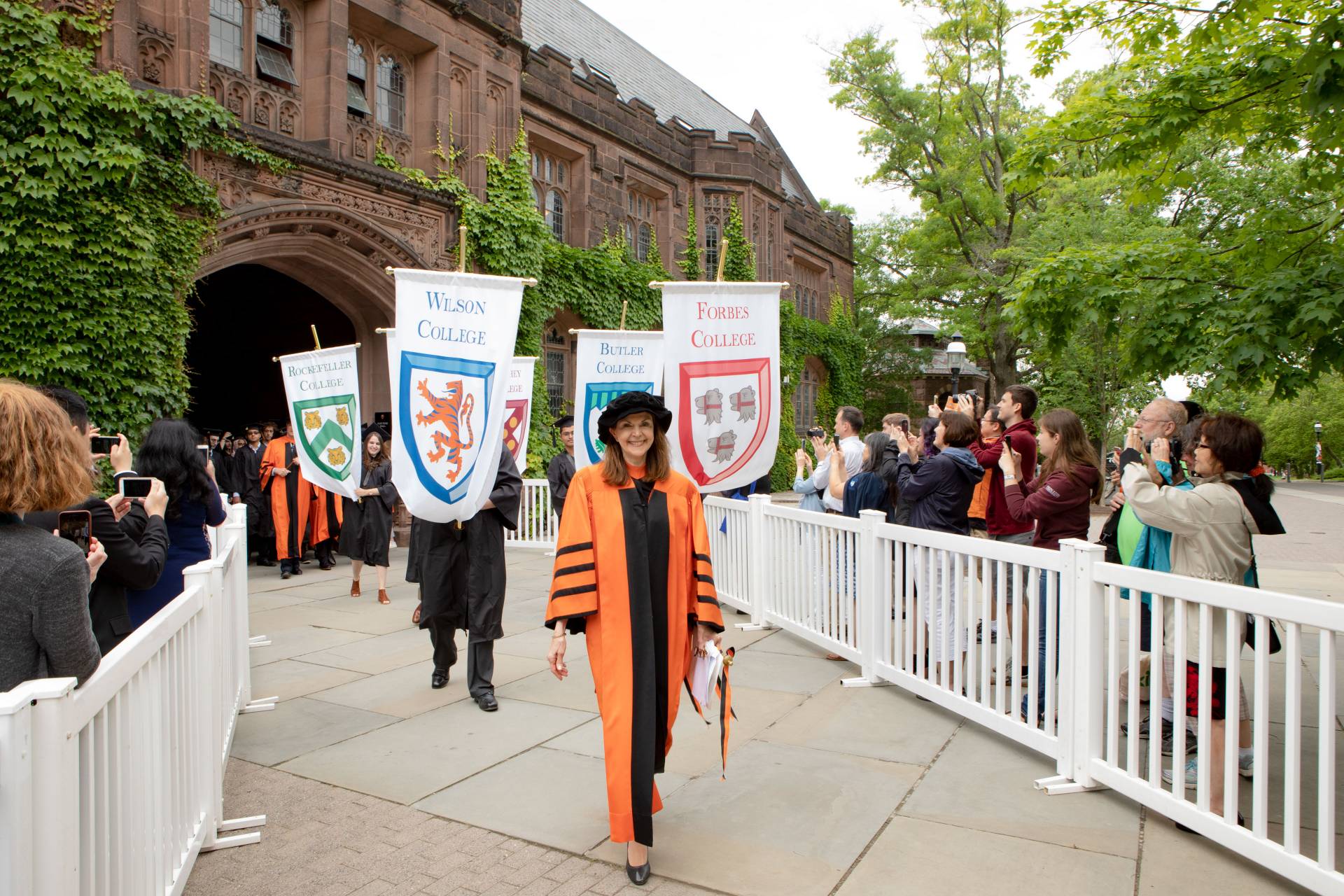
The procession passes through East Pyne’s James Johnson archway, named for a freedman who lived and worked in Princeton for decades in the 19th century.
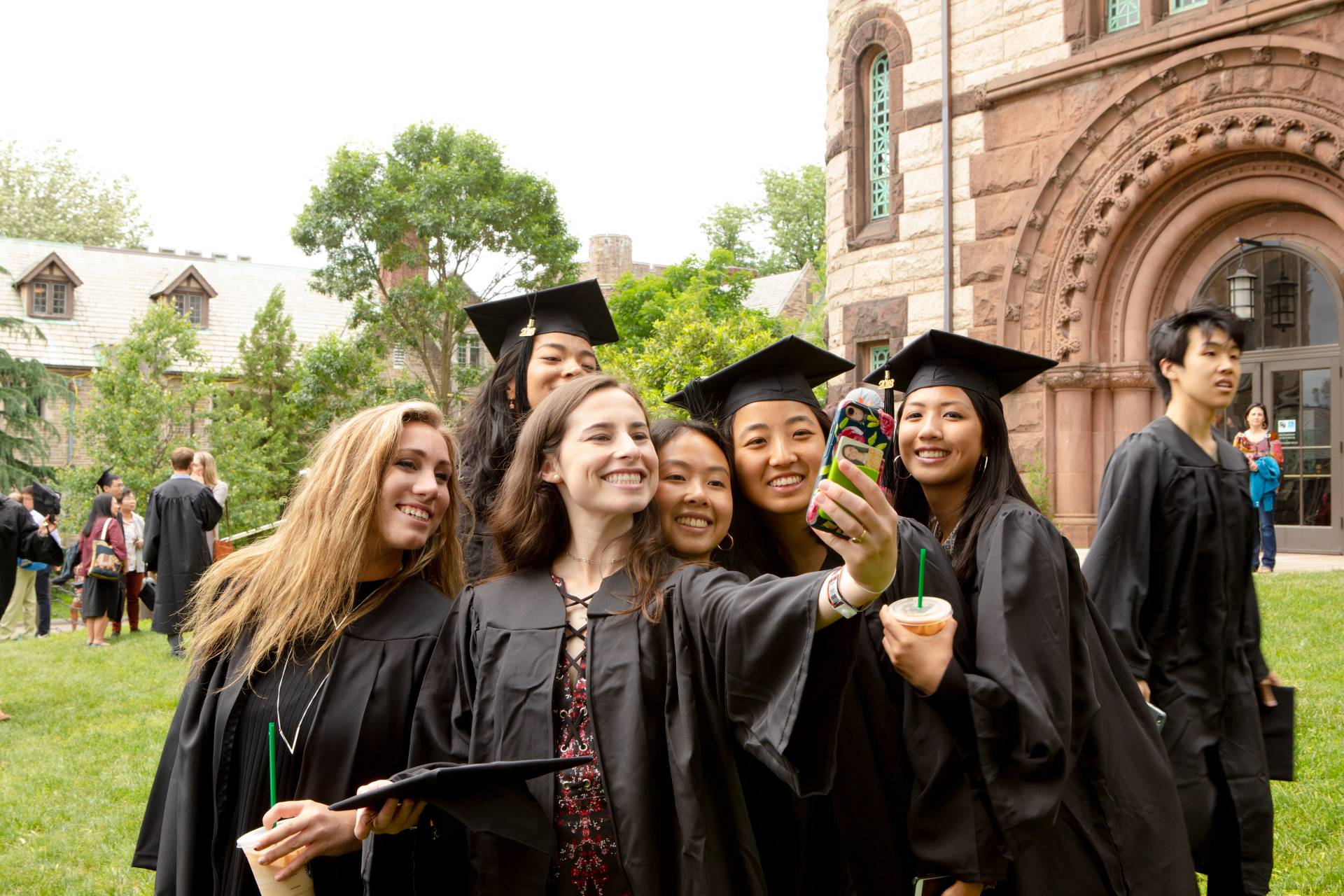
Baccalaureate is the first opportunity for seniors to wear their graduation regalia of caps and gowns. The first recorded Baccalaureate sermon was delivered by then-University President Samuel Davies in 1760.
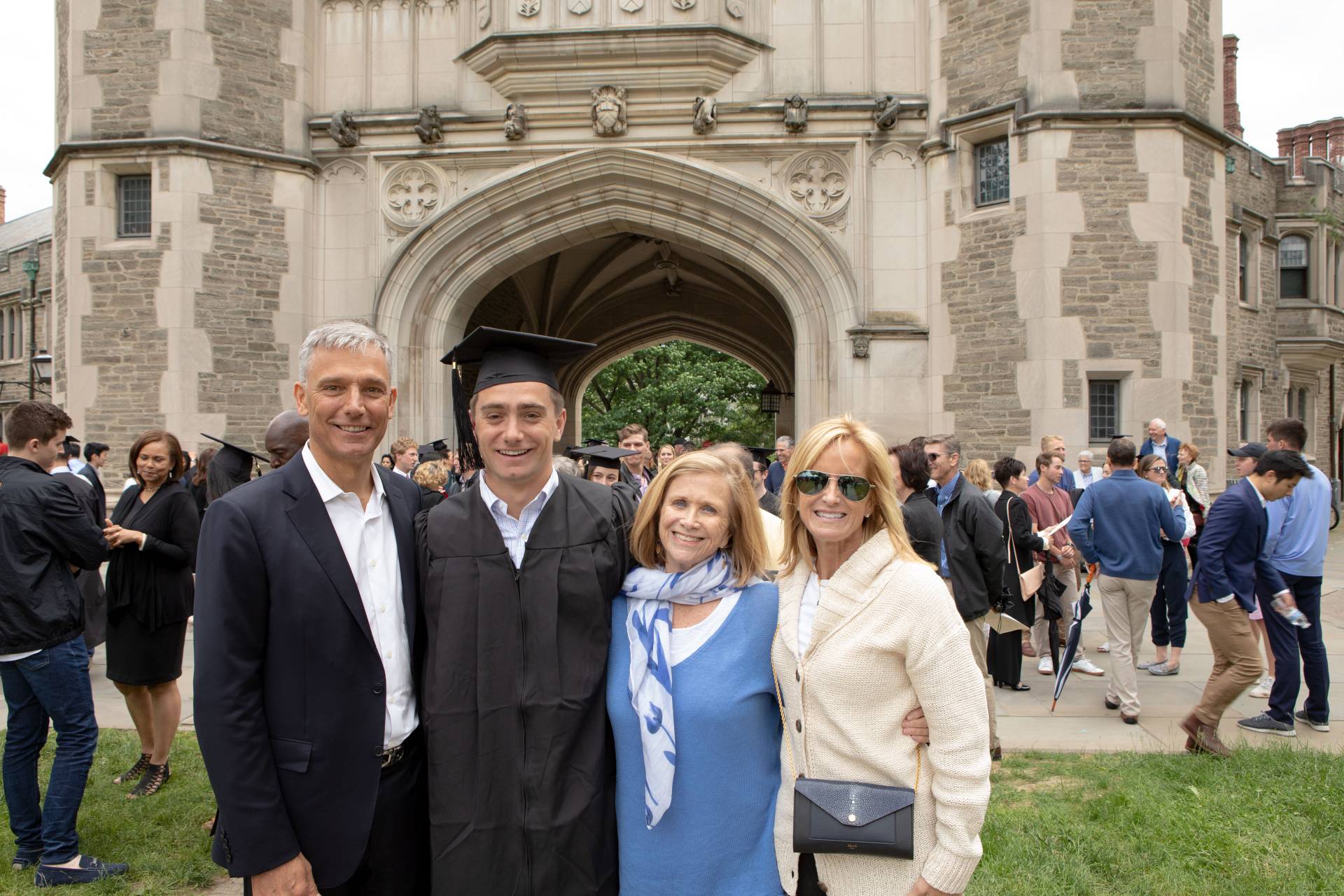
Senior Ryan Hammarskjold of California and his family — father, Philip, a Princeton trustee; grandmother Alicia Carew; and mother, Alicia — gather in front of Blair Hall.
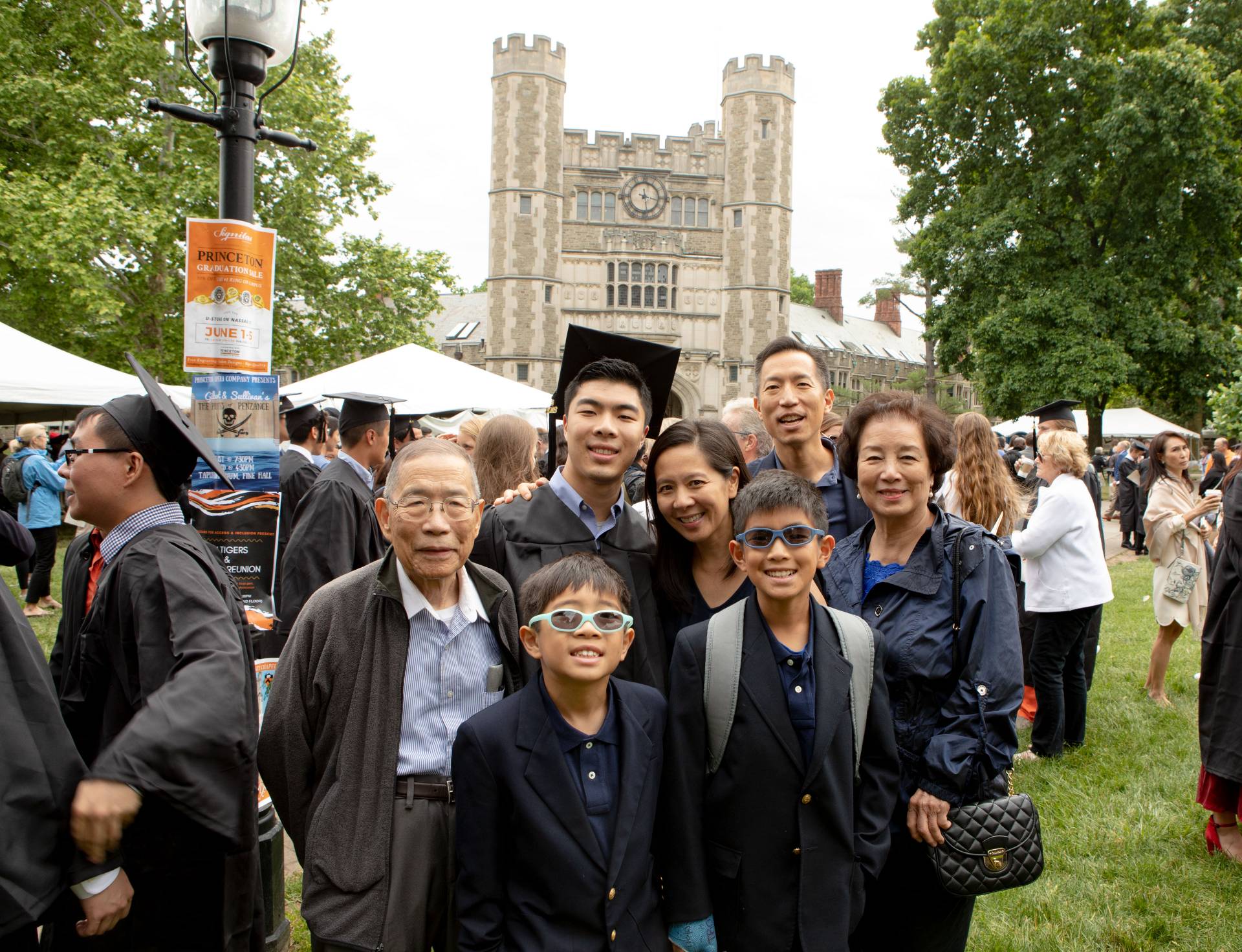
Senior Nicholas Wu poses with his family from Detroit. Back row, from left: grandfather Shyring Hu, senior Nicholas Wu, aunt Yolanda Wu, uncle Dean Hu, grandmother Ellie Hu; front row: cousins Trevor Hu and Kyle Hu.
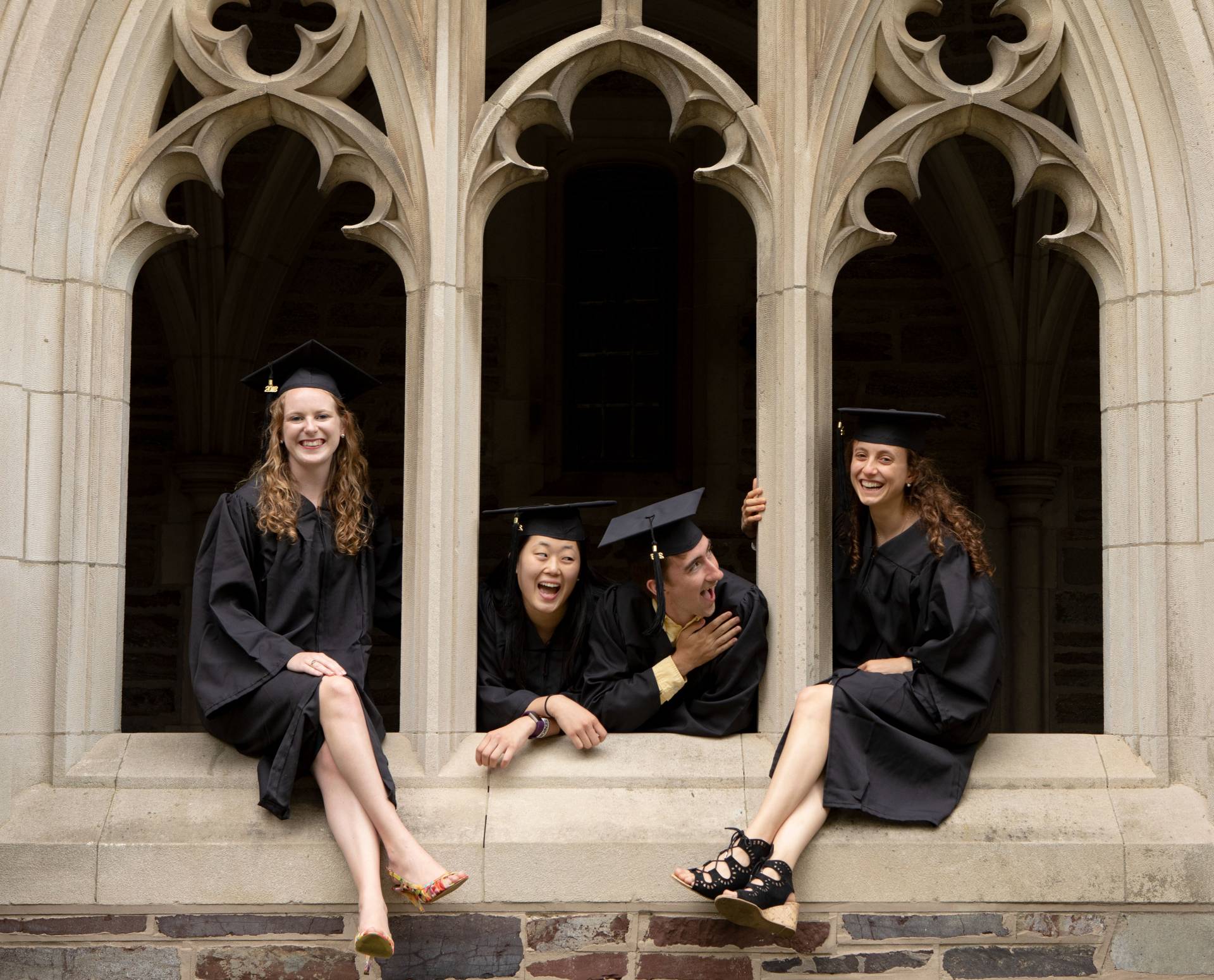
Baccalaureate kicks off three days of end-of-year celebrations.
